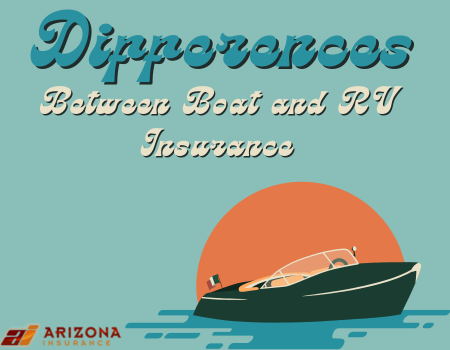As the proud owner of a boat or recreational vehicle (RV), RV insurance or boating insurance is a must! Insurance coverage plays a crucial role in safeguarding your boat or RV against unexpected events.
Boat insurance, also known as watercraft insurance, provides coverage for various types of watercraft, including boats, yachts, jet skis, and sailboats. Boat insurance typically offers protection against a range of risks, such as accidents, theft, vandalism, and liability for property damage or bodily injury.
Key features of boat insurance include
 Hull Coverage:
Hull Coverage:
- Hull coverage provides protection for the physical structure of the boat against damage caused by accidents, storms, or other covered perils. This coverage may also extend to equipment permanently attached to the boat, such as motors, anchors, and navigation systems.
- Liability Coverage:
- Liability coverage protects boat owners against legal liability for property damage or bodily injury caused to others while operating their watercraft. This coverage may also include legal defense costs in the event of a lawsuit.
- Uninsured/Underinsured Boater Coverage:
- This coverage provides protection for the insured boat owner and passengers in the event of an accident with an uninsured or underinsured boater who is at fault for the collision.
- Medical Payments Coverage:
- Medical payments coverage reimburses for medical expenses incurred by the insured boat owner and passengers for injuries sustained while on the watercraft, regardless of fault.
Understanding RV Insurance
RV insurance, also known as motorhome insurance or camper insurance, provides coverage for recreational vehicles used for travel and leisure activities. RV insurance offers protection against similar risks as boat insurance, including accidents, theft, vandalism, and liability. However, there are some key differences in coverage options and features:
- Collision and Comprehensive Coverage:
- RV insurance typically includes collision and comprehensive coverage to protect against damage to the RV resulting from accidents, theft, vandalism, fire, or natural disasters.
- Personal Belongings Coverage:
- RV insurance may include coverage for personal belongings stored inside the RV, such as clothing, electronics, and camping equipment. This coverage helps reimburse for losses due to theft, damage, or destruction of personal property while traveling.
- Emergency Expenses Coverage:
- Emergency expenses coverage reimburses for lodging, meals, and transportation costs incurred if the insured RV becomes uninhabitable due to a covered loss while away from home.
- Full-Timer Coverage:
– Full-timer coverage is available for RV owners who use their recreational vehicle as their primary residence. This coverage provides protection similar to a homeowners policy, including liability, personal property, and additional living expenses coverage.
Key Differences Between Boat and RV Insurance
While boat and RV insurance share similarities in coverage options and protections, there are some notable differences between the two:
- Navigation Territory:
- Boat insurance may include coverage for navigation in specific geographic areas, such as inland waters, coastal waters, or offshore waters. RV insurance, on the other hand, typically provides coverage for travel within the United States and Canada.
- Storage and Usage:
- Boat insurance may offer coverage for both in-water use and storage on land, such as at a marina or storage facility. RV insurance covers usage while traveling on the road and may also provide coverage for storage at a designated location when not in use.
- Specialized Endorsements:
- Boat insurance may offer specialized endorsements for additional coverage options, such as coverage for towing and salvage, pollution liability, or coverage for fishing equipment. RV insurance may offer endorsements for roadside assistance, vacation liability, or coverage for attached accessories, such as awnings and satellite dishes.
Conclusion
While boat and RV insurance share common goals of protecting recreational vehicles against unexpected events, they have distinct features and coverage options tailored to the unique risks associated with each type of vehicle. Whether you own a boat for leisurely cruises on the water or an RV for cross-country adventures, it’s essential to ensure that you have the appropriate insurance coverage to safeguard your investment and enjoy worry-free travels.
